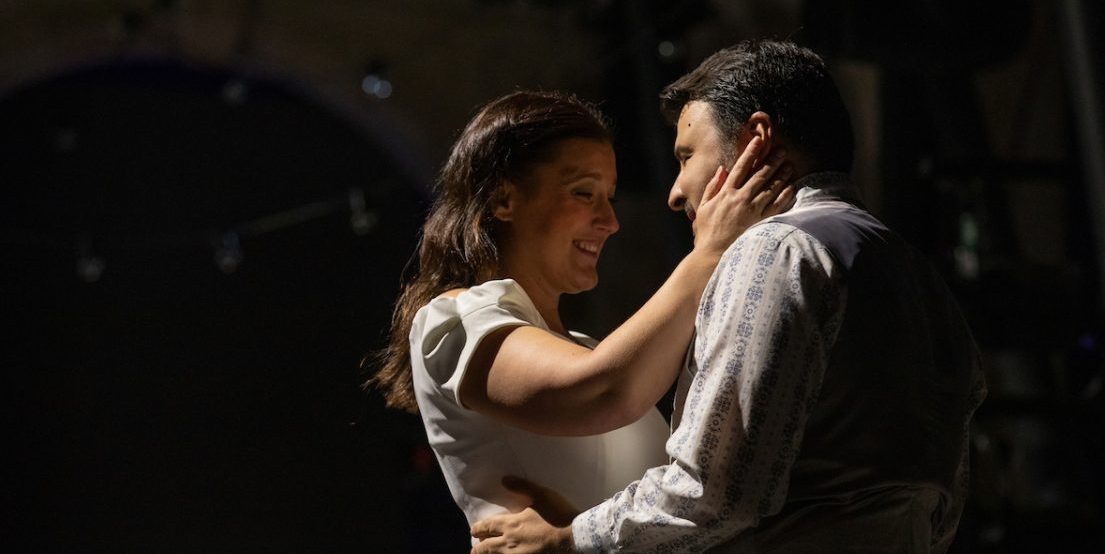We are very familiar with Mascagni’s first opera ‘Cavalleria Rusticana’, from whose successful shadow he strove in vain to escape for much of his later career. But far less familiar is the next opera he composed, written in a different format altogether, and deserving to be rather better known. ‘L’Amico Fritz is composed in a gentler pastoral vein, still aiming to be a portrait of ordinary people and daily life, but without the violence and melodrama of other ‘verismo’ offerings.
The plot is very simple. A wealthy bachelor and philanthropist disdains marriage and romantic love. His friends, led by a rabbi, David, assure him he will come to change his mind, and Fritz pledges his vineyard that he will never marry. Suzel, a local girl, gives Fritz a bunch of freshly picked flowers for his birthday, and he later joins her in picking cherries, leading both to celebrate the beauty of Spring. David discovers that Suzel loves Fritz and when she pretends to be engaged to another man (a ruse of David’s) Fritz is brought to realise that he loves her too. David wins his bet but gifts the vineyard to Suzel as a wedding present.
Stated in these bald terms this seems like very insubstantial fare. But in fact, there is a lot to admire here. There is some exquisitely delicate orchestral writing, both separate from and alongside the voices, which emphasises how much Mascagni learned from Wagner and the German tradition. All of this is beautifully balanced and phrased by Beatrice Venezi in the pit, working with reduced forces from the City of London Sinfonia that are still quite weighty enough when they need to be. And in the vocal lines, there is the usual flow of appealing melody and some admirably varied set-piece numbers which show off the skills of the singers democratically.
The lead roles are very well taken by Matteo Lippi and Katie Bird. Fritz is more a reactive than heroic role – again one of the composer’s deliberate sidesteps of expectation. But Lippi has a lovely tone and excellent natural phrasing for both lyrical and irate moods. The burden of the lead singing rests more on Bird who must transition from timorous ingenue through to a more assertive presence in the final act. She is more than equal to this challenge and combines with Lippi to offer a powerful performance of the famous ‘Cherry Duet’ which is the musical highpoint of the first half, and arguably of the opera as a whole.
But the most dramatically powerful singing of the evening comes from bass-baritone Paul Carey Jones as Rabbi David. His rich tone, honed on the roles of Wotan and Scarpia, is here turned to benign ends as the moral compass and marriage broker. Though this is a supporting role, he dominates the scenes in which he appears, and the episode in which he and Suzel relate the story of the marriage of Isaac and Rebecca is truly gripping and the dramatic centrepiece of the opera. Less successful is the presentation of the character of another friend of Fritz, Beppe, a gypsy violinist. Director Julia Burbach presents the character as a second marriage broker, a winged ‘Deus ex Machina. With such a strong Rabbi David it is hard to see the sense behind this interpretation. All the other minor roles are more than competently presented and there are some powerful interventions by the chorus too.
The minimalism imposed by circumstances on Opera Holland Park is turned to good effect in this opera. Locations are suggested and sketched rather than detailed, so that, for example, a series of white stepladders are used to indicate cherry-picking in the orchard. It is one of those cases where making a virtue of necessity produces a more effective and suggestive outcome. When the music itself is so variedly evocative you can afford to be more oblique in rendering the visuals.
It is a feature of Opera Holland Park each year to remind us of many fine late-nineteenth-century Italian operas that languish in undeserved obscurity, and it is to be hoped that productions such as this will propel revivals of this opera more widely.

